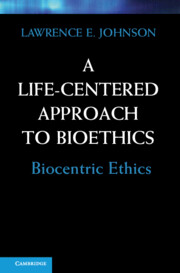Book contents
- Frontmatter
- Contents
- 1 Introduction
- Part I Backgrounds
- Part II Life, Death, and Bioethics
- 6 Being Alive
- 7 Being Healthy
- 8 Health and Virtue
- 9 Death and Life
- 10 Drawing Lines with Death
- 11 Double Effect
- 12 Concerning Abortion
- 13 The Gene, Part I
- 14 The Gene, Part II
- 15 Ethics and Biomedical Research
- 16 Bioethics Seen in an Eastern Light
- 17 Toward a Wider View
- Bibliography
- Index
15 - Ethics and Biomedical Research
Published online by Cambridge University Press: 05 June 2012
- Frontmatter
- Contents
- 1 Introduction
- Part I Backgrounds
- Part II Life, Death, and Bioethics
- 6 Being Alive
- 7 Being Healthy
- 8 Health and Virtue
- 9 Death and Life
- 10 Drawing Lines with Death
- 11 Double Effect
- 12 Concerning Abortion
- 13 The Gene, Part I
- 14 The Gene, Part II
- 15 Ethics and Biomedical Research
- 16 Bioethics Seen in an Eastern Light
- 17 Toward a Wider View
- Bibliography
- Index
Summary
Some Applications
Deservedly, biomedical research has a good reputation because of the great benefits it has brought, and promises to bring, to humankind. Nonetheless, it also has a tarnished reputation in the eyes of many people. In part this may be due to irrational fears, but the sad fact is that some things have been done as biomedical research that ought not to have been done. There is a continuing fear that new things, and new sorts of things, might go terribly wrong. To be sure, things can just go wrong, particularly when one is dealing with the unknown, as research characteristically does. However, sometimes things have gone wrong because of moral shortsightedness, or just plain immorality, on the part of the researchers or those controlling them. I will shortly tell a few horror stories in this regard. Furthermore, sometimes situations are so novel and complex that the best and most moral will in the world would have the utmost difficulty in determining the right course of action.
We must bear in mind that moral wrongness does not commonly appear in stark and overt form. In biomedical research, as elsewhere, it frequently arises from ignorance, inadvertence, or misguided priorities. Researchers may be driven by a desire for reputation, or perhaps just by a desire for professional survival, and by visions of the great good to come of it all. Ethical corners may be cut and means justified by ends, all without consciousness that any real wrong is or might be done. We humans find it very easy to not see what we do not want to see, as well as to see what we do want to see (even if it is not there).
- Type
- Chapter
- Information
- A Life-Centered Approach to BioethicsBiocentric Ethics, pp. 319 - 334Publisher: Cambridge University PressPrint publication year: 2010



